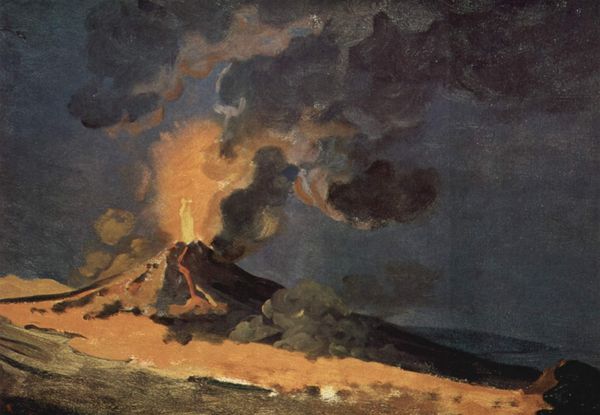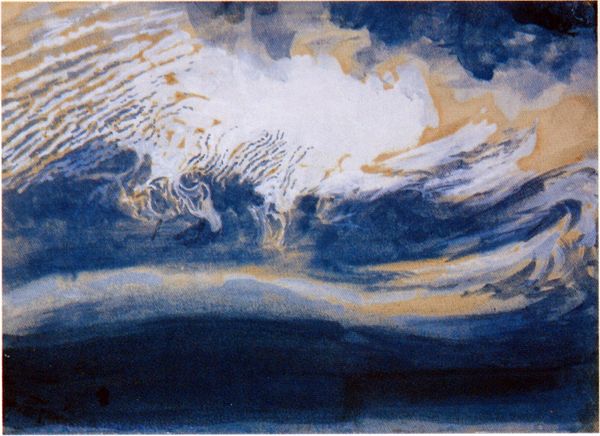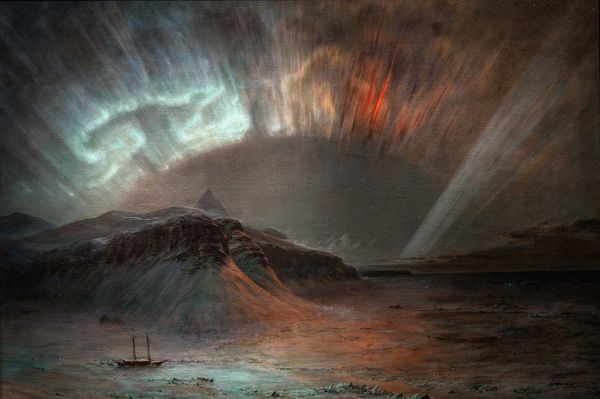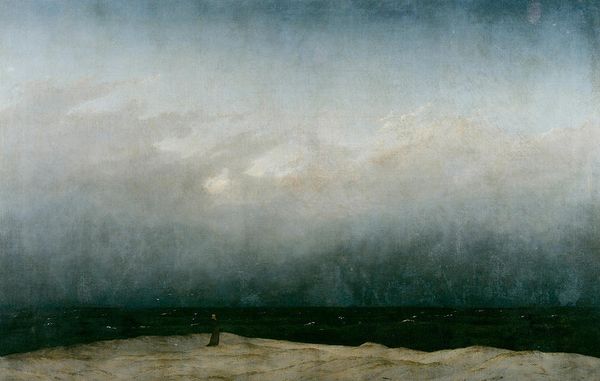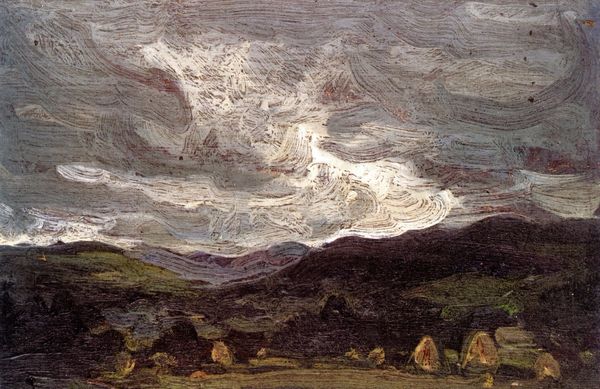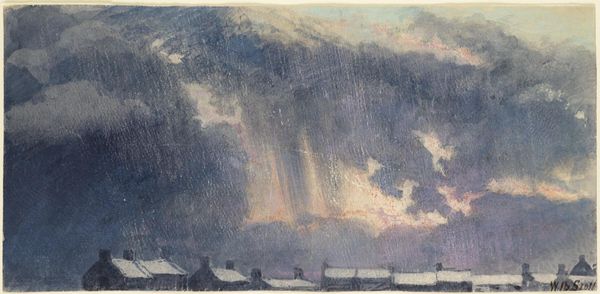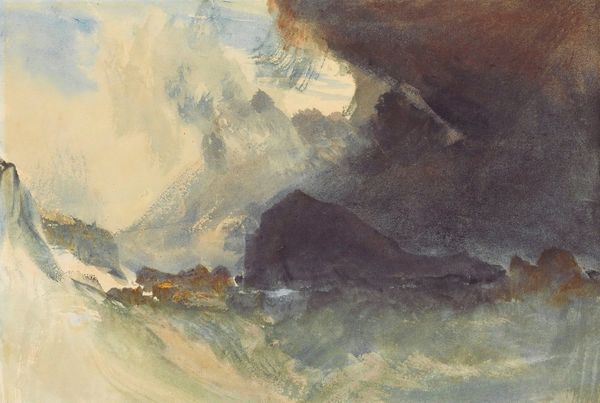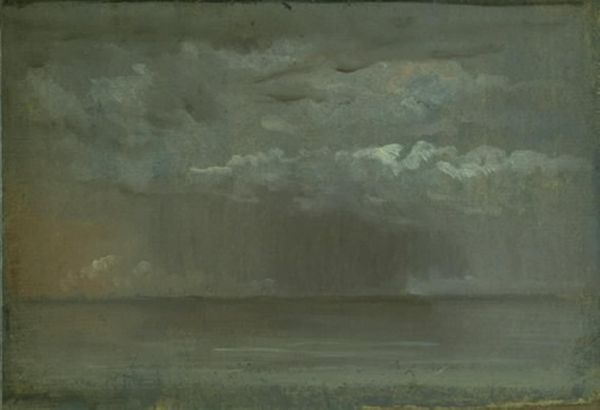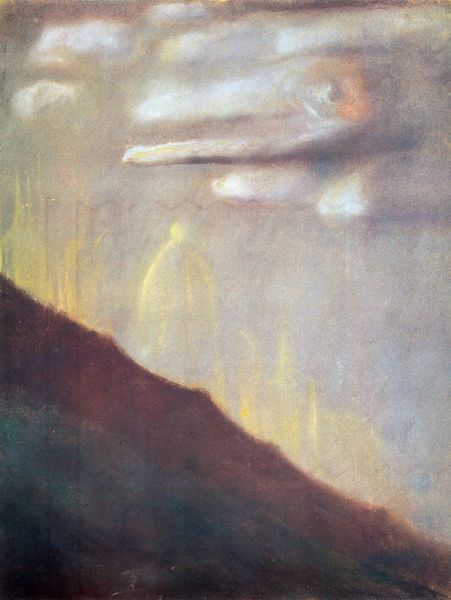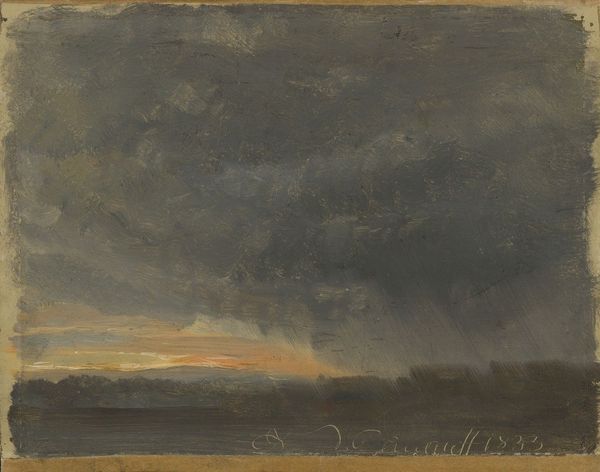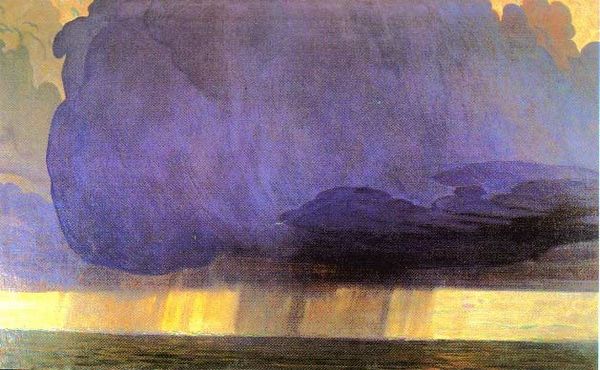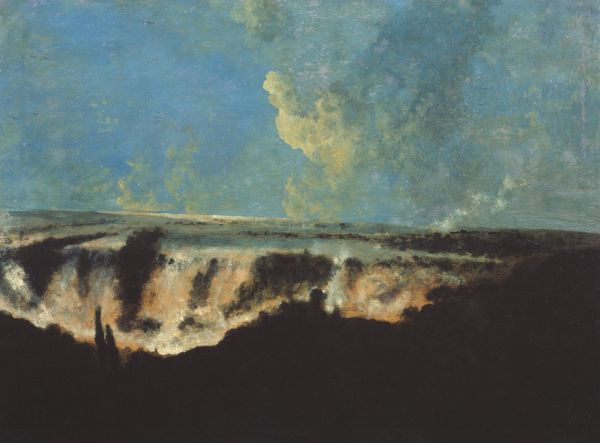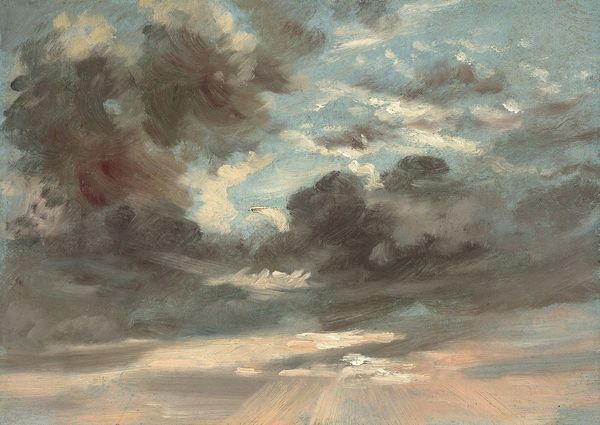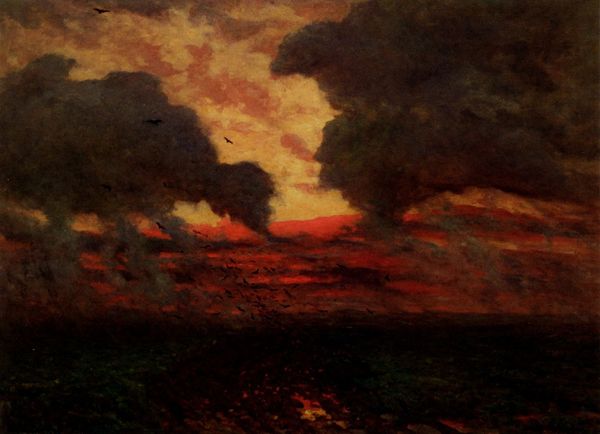
Copyright: Public domain
This is Frederic Edwin Church's "Aurora Borealis, Mt. Desert Island, from Bar Harbor, Maine." We are unsure when exactly it was painted. Church, a central figure in the Hudson River School, captured the sublime power of nature, often tinged with an imperialist view of landscape as territory to be conquered. Here, the Northern Lights illuminate the rugged Maine coastline, a spectacle that evokes both awe and vulnerability. In the 19th century, such depictions served as visual testaments to American exceptionalism and expansionist ideologies. Yet, the painting also subtly acknowledges the limitations of human ambition against the backdrop of the natural world. The darkness in the painting contrasts against the luminous sky which makes us consider our place within a larger cosmos. The emotional resonance of Church's aurora isn’t merely about geographical grandeur; it also reflects anxieties tied to identity and belonging in a rapidly changing nation. Its legacy endures as a reminder of how landscapes can embody complex dialogues about power, perception, and our collective search for meaning.
Comments
No comments
Be the first to comment and join the conversation on the ultimate creative platform.
